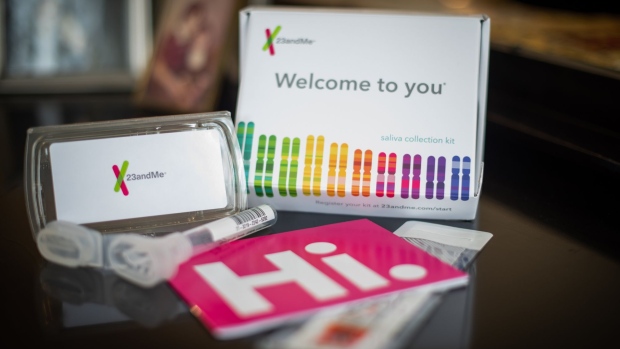Feb 4, 2021
23andMe goes public as US$3.5B company with Branson aid
, Bloomberg News

Consumer DNA-testing company 23andMe Inc. has entered into a deal to merge with VG Acquisition Corp., a special purpose acquisition company founded by billionaire Richard Branson.
The agreement values the Silicon Valley company at US$3.5 billion, with Chief Executive Officer Anne Wojcicki and Branson each investing US$25 million into a US$250 million private investment in public equity offering. Bloomberg News reported news of a potential deal last week.
Other investors include Fidelity Management & Research Company LLC, Altimeter Capital, Casdin Capital and Foresite Capital. Current shareholders of 23andMe will own 81 per cent of the combined company, with the deal expected to close in the second quarter of 2021. A merger with a special purpose acquisition company, or SPAC, allows 23andMe to go public without the uncertainty or holding an initial public offering.
“COVID-19 has really opened up doors,” Wojcicki said in a joint interview with Branson. Now more than ever, she said, people are interested in preventative health care. “I’ve had this dream since 2003 that genetics would revolutionize health care and that’s really the era I see we can now usher in.”
The influx of new capital will allow the company to expand its efforts in developing therapeutics from its trove of genetic data, according to Wojcicki. She also plans to expand the company’s reach on the consumer front.
In the 1970s, Branson founded the Virgin Group that now owns hundreds of companies. “There is no better money to invest than in health care,” Branson said in the interview Thursday.
SPACs have become a popular vehicle for companies to go public over the past year. The combined company will have a pro forma cash balance of more than US$900 million. Once the deal is closed, VGAC will change its ticker to ME and the combined company will trade on the New York Stock Exchange.
Genetic Testing
Co-founded in 2006 by Wojcicki, 23andMe sells direct-to-consumer genetic testing kits. The company launched with the aim of using genetics to kick start a personalized health-care revolution, with a US$1,000 test that could alert customers to potential health risks that quickly ran into regulatory issues that forced it to be pulled from the market.
Wojcicki then pivoted to ancestry testing, and later re-launched a health-care test after gaining Food and Drug Administration approval.
But the once-booming genetic testing business has since slowed as early adopters have thinned out and consumers concerned over privacy have shied away. 23andMe cut jobs last year, as did rival Ancestry.com Inc. Ancestry also last month pulled its own health test from the market and cut more jobs.
More Than Entertainment
23andMe, meanwhile, has doubled down on efforts to prove that consumer DNA tests offer more than entertainment value.
The company has vastly expanded efforts to turn genetic data from its more than 12 million customers into therapies, and has a deal to collaborate on drug development with GlaxoSmithKline Plc, which took a US$300 million stake in the company in 2018.
Last year, the company licensed a drug developed in-house to another company. In total, it has more than 30 therapeutic programs in progress. But drug development is expensive, and Wojcicki said the merger allow the company to expand those efforts. “There is a lot more opportunity with cash,” she said.
“They are absolutely transforming drug discovery,” said Branson, who was an early investor in the company.
Impact Decisions
23andMe has also sought to find new ways to more directly impact the health decisions of its customers.
When the pandemic began, 23andMe launched a million-person study to look at how genomics and other factors contribute to how severely ill those who contract the virus become. Last month, it launched its COVID-19 Severity Calculator, which calculates a person’s risk of being hospitalized due to the virus.
In October, it also quietly launched a subscription product that gives consumers more detailed information about their health. Wojcicki said the company would like to be more involved in their customers’ health care.
“We want to solve the problem of doctors not knowing what to do with genetic information,” she said.
Wojcicki has long-expressed hesitancy about becoming a publicly traded company. But the focus on health care created by the pandemic created the right moment for a public debut, she said.
“We’re in a position to grow, to really accelerate what we’re doing in therapeutics and on consumer side,” Wojcicki said. “It’s the right time.”
LionTree Advisors served as financial advisor to VG Acquisition Corp. in the merger.

